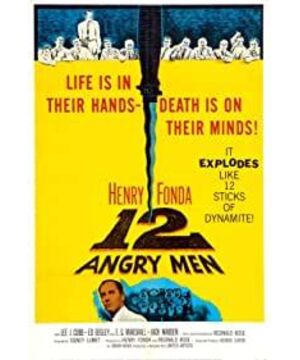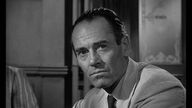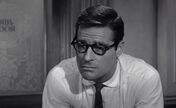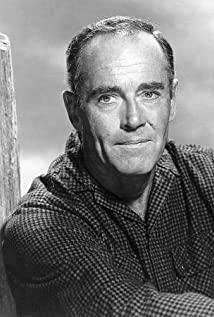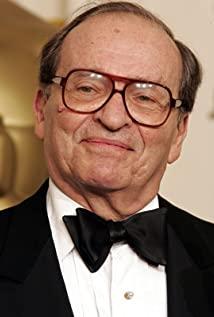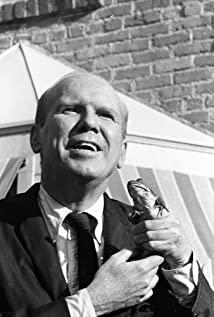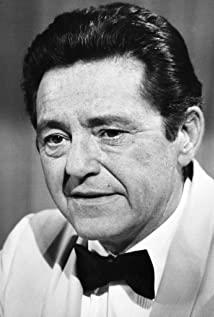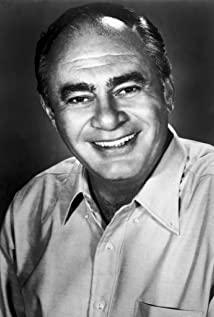At the beginning of the film, the jury of 12 people are locked in a discussion room, and they need to discuss a murder case that seems to be very strong evidence, give a jury opinion (or verdict? The film mentions their The conclusion decides the life and death of the accused). And this verdict, which almost everyone thought was no suspense, turned into a long hour and a half of discussion and debate with the insistence of juror No. 8. The case itself is not complicated. An 18-year-old boy living in a slum who had been subjected to long-term violence by his father was identified by two witnesses as having an argument with his father at midnight one day and murdering his father. At the beginning, all kinds of evidence were highly unfavorable to the defendant, and the details of the case and the doubtful points of all kinds of evidence were gradually revealed to the audience during the discussion. There is so much to say about this film, I just want to say what I think about the 12 members of the jury.
Juror No. 1, a high school team coach, the moderator of the meeting, who presides over the meeting and maintains order. Few of his personal views were expressed throughout the discussion, so his thoughts were not visible. But his contribution to the entire discussion process is indispensable; as the title of the film, "12 angry men", almost everyone is in a state of anger or agitation after the discussion unfolds, and there may be a deadlock in several discussions. In every case, he defied the crowd and completed the entire discussion according to the meeting procedure.
Juror No. 2, wearing glasses, a small, somewhat shy middle-aged man. It was the first time I participated in this kind of jury. He was a kind and good man, and he enthusiastically distributed throat candy to everyone during the discussion. When the protagonist (Juror No. 8) began to question the evidence, he should have been skeptical, but did not immediately follow the protagonist against the others. The defendant was acquitted midway through the discussion, contributing to the turning point of the 6-6 draw.
Juror No. 3, most of the time in the film, gives the impression of an angry middle-aged man, always ranting about the defendant's guilt, and being the last to insist that the defendant is guilty. In his eyes, the evidence of this case is solid, and he can't wait to send the defendant to the electric chair himself, and he doesn't understand why other people have doubts. In fact, his conclusion was not firm, and he just kept taking a stand during the discussion, arguing that the testimony of the witnesses was obvious. In fact, his own son had a fight with him and ran away from home when he was a minor. This is explained very early in the film, but it is not until the end that it is pointed out that this is the reason why he insists that the defendant is guilty. It was with such a painful past and his unwillingness to take responsibility for his own mistakes that he developed a deep hatred for his son and projected it onto the defendant. This seems to be called "empathy" in psychology. Phenomenon. Still, he kept his son's photo with him. When he finally roared and yelled at the son in the photo that you ruined your own life under the gaze of 11 other people, he should have realized this, so he sobbed and said, "No Sin", which gave an end to this long debate, and also gave an end to his love-hate relationship with his son.
Juror No. 4, a middle-aged man with glasses and thinning hair, does stock analysis work. Extremely rational and calm throughout, and confident in his own intelligence. Compared to No. 3, he was the most difficult to convince of the party who believed the defendant was guilty. He always tried to prove the defendant's guilt with reason and logic, but after jury 9 pointed out a key detail that he (including everyone) had overlooked, he was persuaded and agreed to the defendant's innocence. He believed in his own intelligence and rationality, and he was always calm and restrained in the debate with the protagonist and others, convincing people with reason, but he did not expect that people who are not sages and sages are infallible, and still ignored key details. In addition, when the last juror number 10 made a class-biased remark, everyone else turned their backs to protest, only he sat to hear the end, and said to number 10, "Shut up, and don't talk again." Endurance is extraordinary.
Juror No. 5, who grew up in a slum and feels inferior to his origins. The discussion started with little speech, but later joined the discussion, supporting the innocent party and providing a lot of valuable information based on his own experience.
Juror No. 6, an ordinary office worker, has a strong sense of justice. When the discussion was deadlocked at the beginning, he had persuaded No. 8 that he must be wrong, but when he saw more and more suspicious things, he also turned to the innocent side, which contributed to the turning point of the draw. He was the first to warn Number 3 when Number 3 was rude to Number 9.
Juror No. 7, a sales fan, was the most violent when the protagonist first questioned, because he bought the tickets for the evening and was going to watch the game, and he didn't want to waste time here. The discussion grew increasingly impatient, and when the situation became a 6-6 draw, he backed the innocent side, just to end what he thought was a boring discussion early. People like him only care about pleasure and their own interests, and I am afraid that in the end, they will not be able to get any enlightenment from this discussion.
Juror No. 8, the protagonist of the film, the whole incident can be said to be caused by him. In the beginning, when everyone else thought the defendant was guilty, it was he who questioned and delayed the discussion for an hour on a matter that was expected to be resolved in 5 minutes, and the motive was only that it was unacceptable that only 5 minutes could decide the life and death of a child, We must talk first. In fact, at the very beginning, he had no sufficient reason to question the evidence of the case. The questions were constantly discovered and amplified during the discussion. And it was his belief that he could not take human life in a hurry, which prompted him to use extraordinary courage, from the beginning with 1 to 11, to gradually striving for allies, and finally to complete a complete reversal. In fact, whether the murderer is a boy or not is still doubtful from the evidence presented. However, this spirit of "doubt and guilt never fails" may avoid a tragedy.
Juror No. 9, a thin and spirited old man, was the first in the crowd to support the protagonist. At the beginning, the protagonist was under a lot of pressure by 1 to 11, so he had to propose a vote. If everyone except him still has the same opinion, it will be treated as guilty. At this point it was juror No. 9 who voted against it out of 11, allowing the discussion to continue. A TED talk mentioned that the first supporter is very important for the initiation of an event, which marks a qualitative change from no one following to someone following. Number 9 plays that role here. Near the end, he also found a problem that everyone ignored, and finally persuaded No. 4. At the end of the film, everyone walked out of the courthouse after the rain and the weather. No. 9 and No. 8 simply shook hands, exchanged names, and greeted each other and left.
Juror No. 10, an old man with a class bias. Like No. 3, he thinks the defendant is guilty but just keeps giving conclusions and positions, putting the reasoning process behind his back. This kind of person can only be tough when he is in the majority, and looks vulnerable when he is weak and needs to justify it. The class-biased remarks he finally made aroused everyone's disgust, and he could only withdraw.
Juror No. 11, the watchmaker, was also one of those who started supporting the protagonist early on. During the whole discussion, he had two impressive performances: First, he was provoked by the indifferent attitude of No. 7 when No. 7 changed from being guilty to thinking that he was innocent, and asked whether he was playing with his life. , If you think you are guilty, you must persevere, and No. 7 is speechless under severe questioning. Second, when the debate gradually turned into personal attacks, he stood up to remind everyone of their responsibilities, and reminded them that such a free-spirited form of democracy was what made their country strong. It also played an important role in the discussion.
Juror No. 12, a cheerful and talkative man, wears black-rimmed glasses. At the beginning, the feeling was similar to that of No. 7, and he didn't care about the discussion, and he was still drawing board games on paper to pass the time during the discussion. But in the end, the doubts gradually escalated, and when the situation gradually became clear, it became serious and agreed with the judgment of innocence.
Overall, "12 Angry Men" is a great film; and the discussion process described in the whole film can also be regarded as a model of the American judicial system. It is awe-inspiring for such a judicial system that embraces faith.
View more about 12 Angry Men reviews


